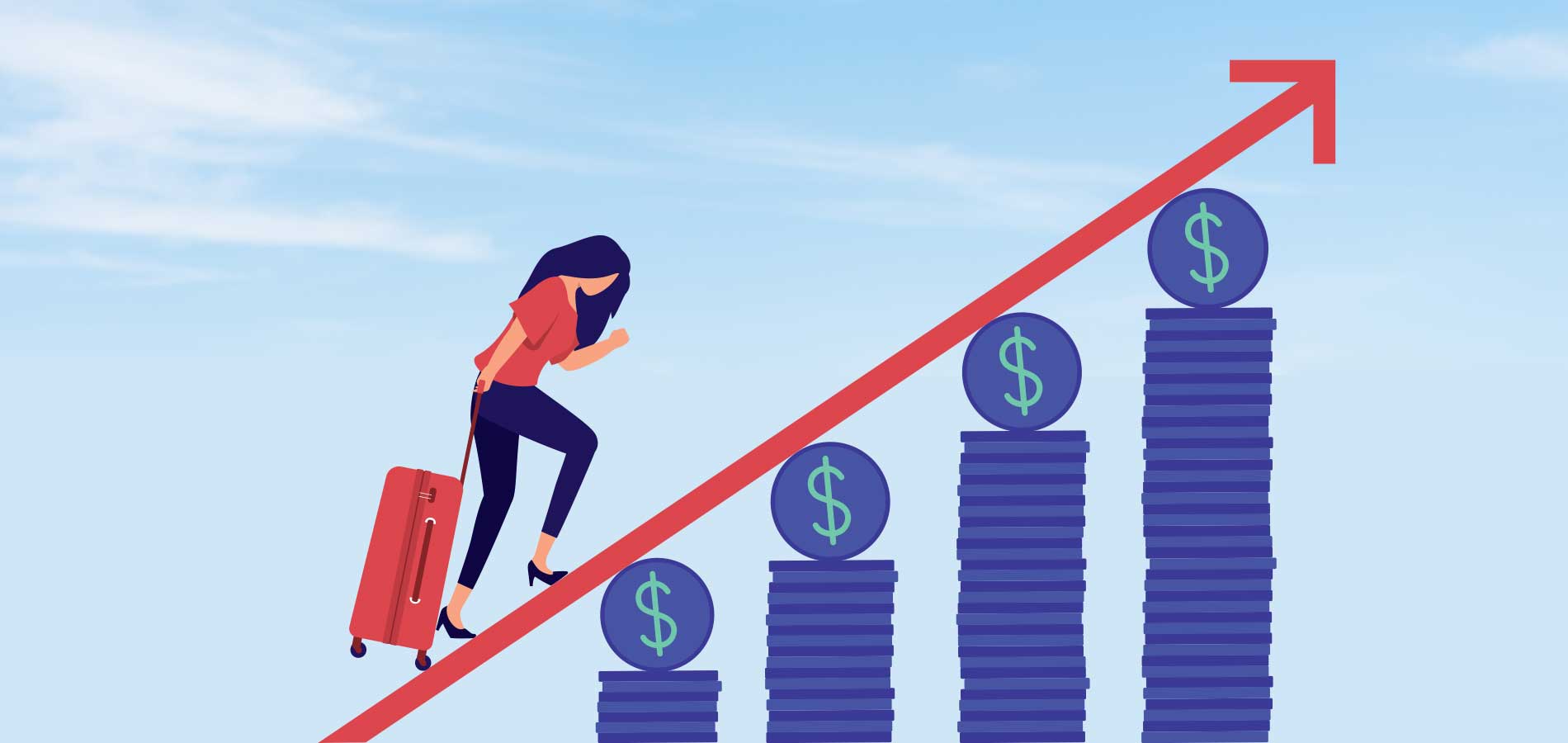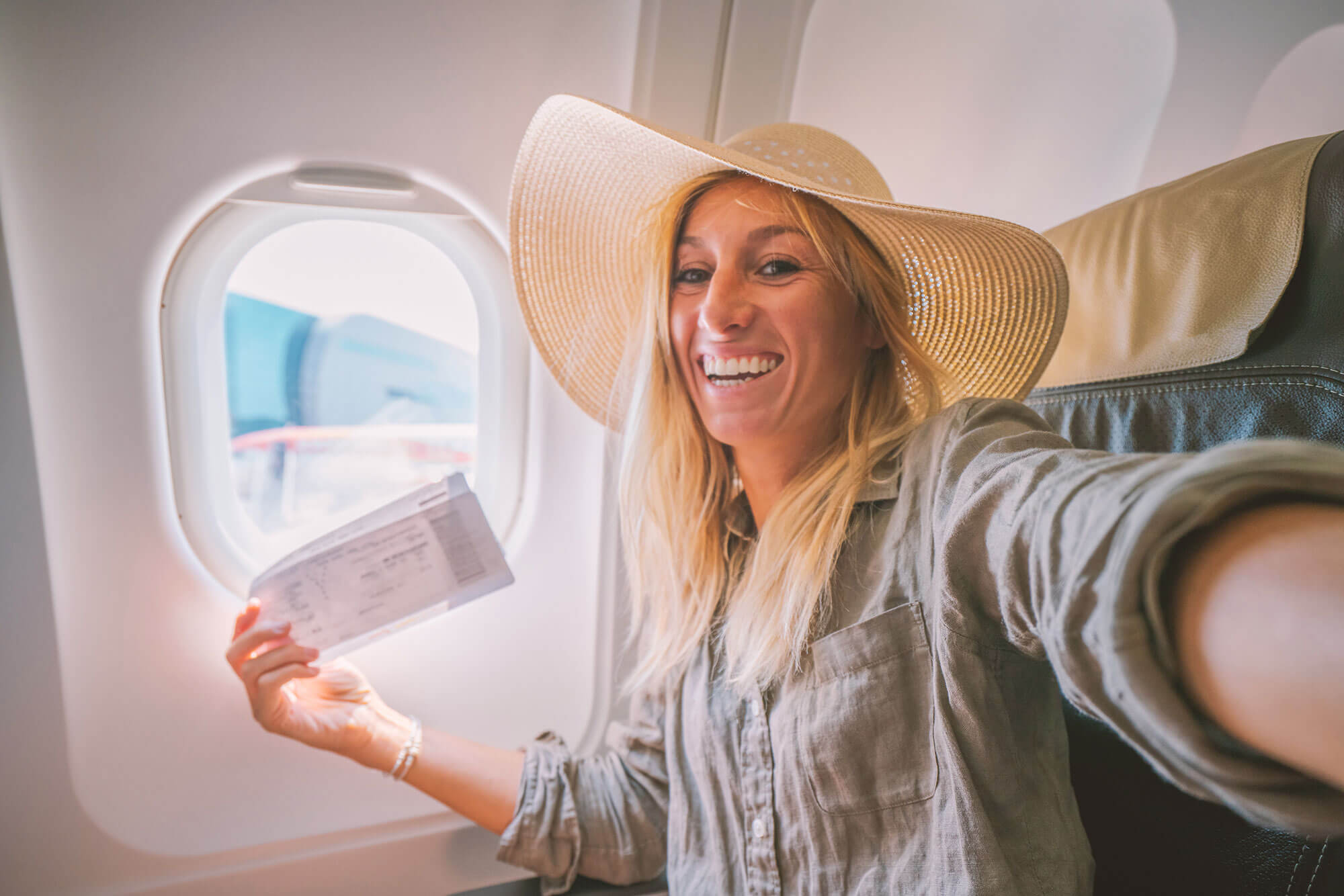This question has been on many bargain hunters' lips when looking for great flight deals online.
So whether you are spending dollars or using points, keep these travel tips up your sleeve when planning your next wanderlust adventure.
Most airlines start selling flights 11 months in advance before each plane hits the runway for takeoff. But with airfare prices always changing, when is the best time to book a flight? Should you book earlier to secure your seat, or wait it out hoping for a sale?
The best time to book cheap flights can vary depending on several factors, including the destination, time of year, and current market conditions. However, there are a few general tips that can help you find better deals:
1. Book in advance: Generally, booking your flights well in advance can increase your chances of finding cheaper fares. We have mentioned in previous blogs, the Goldilocks window” — a period of time when cheap fares are most likely to pop up for domestic and international flights. For domestic flights, if you're wanting to fly in peak season, it's about 3 to 7 months in advance, and for international flights, it is 4 to 10 months before the departure date, and prices tend to rise as the departure date gets closer.
2. Be flexible with your travel dates: If you have flexibility in your travel dates, you can increase your chances of finding cheaper flights. Flying on weekdays or during off-peak seasons often results in lower fares compared to weekends or peak travel periods.
3. Use fare comparison websites: Utilise online travel agencies or flight search engines that aggregate prices from multiple airlines. These platforms allow you to compare fares across different airlines, helping you find the best deals available. Searching and booking is simple because you just need to click the flexible date box to see all the dates, flights and airlines in a calendar view.
4. Sign up for price alerts: There are a number of travel websites and airlines that offer price alert services. You can subscribe to receive notifications when prices drop for specific routes or destinations you're interested in. This way, you'll be informed when deals are available.
5. Consider alternative airports: Check if there are alternative airports near your departure or destination cities. Sometimes, flying into or out of a nearby airport can result in lower fares.
6. Avoid peak travel periods: Flights during holidays, school breaks, and other peak travel periods tend to be more expensive. If possible, try to plan your trip during off-peak seasons when demand is lower, and fares are generally cheaper.
7. Book flights during Happy Hour and other sales: It goes without saying, that when it comes to buying a ticket, you should keep an eye out when airfares go on sale. The key to this approach goes beyond mere luck, so read on!
For example, Virgin Australia offers Happy Hour sales regularly. It happens every Thursday between 4 pm and 11 pm AEST - so put a reminder in your calendar so you don't forget. Each week's sales can vary, depending on the routes and travel dates. In the event that you don't find anything suitable the first time, something else may become available later on in the week.
Travelling at certain times can help you save
Flight prices are determined by various factors, and one of the most significant influencers is passenger demand. As the number of seats sold on a flight increases, the availability of lower airfare levels diminishes. This phenomenon is the reason why booking last-minute flights can often be more expensive.
Passenger demand plays a vital role in shaping flight prices. Airlines constantly monitor the demand for their flights to optimise their revenue. When there is high demand for a particular flight, the airline may increase the ticket prices to maximise profits. Conversely, when demand is low, airlines may lower prices to attract more passengers.
As more seats are sold on a flight, the number of available seats at lower airfare levels decreases. Airlines typically offer different tiers of ticket prices, with limited seats available at each level. Once all the seats in the lower airfare level are sold, passengers can only purchase tickets at higher price tiers. This is why it is often advisable to book flights well in advance to secure lower airfare levels.
In spite of this, there is an upside for those who know how to play the game. There is a higher demand for flights on Monday and Tuesday mornings, and Thursday and Friday afternoons, which are popular with corporate travellers. Tickets that are most affordable are snapped up first, resulting in higher prices.
On the flip side, there is an interesting phenomenon when it comes to booking flights online. Flights during quieter times tend to have a slower rate of sales, which can actually work in favour of travellers looking for a bargain. This is particularly noticeable with domestic flights that depart on Saturday nights and Sunday mornings. During these times, the corporate crowd is typically at home, and weekenders have already gone on their trips. As a result, the market for these flights becomes significantly smaller.
This smaller market often leads to lower prices for these flights. Airlines recognise that demand is lower during these time slots, so they may offer discounted fares to attract more passengers. This can be a great opportunity for budget-conscious travellers who are flexible with their travel plans. By taking advantage of flights during these quieter times, travellers have a greater chance of finding a bargain and saving money on their journey.
Early to midweek also tends to be cheaper on off-peak days, and as a rule of thumb, the busier the weekend, the more the flight is going to cost.
It is generally considered cheaper to fly on Tuesdays, Wednesdays and Saturdays.
The same logic can also apply when it comes to flying at certain times of the day. In general, flights tend to be cheaper during the middle of the day and in the evening after 8 pm. The reason behind this is that business travellers often prefer to take early morning flights to ensure they can make their meetings on time. Similarly, flights in the late afternoon and early evening are popular among business travellers as they allow them to wrap up their work for the day and head home.
Not only can booking the last flight of the day be a smart strategy when it comes to saving coin on your travels, but it also allows you to extend your stay in a city without having to pay for an additional night at a hotel. Instead of rushing to catch an earlier flight, you can leisurely explore the city, have a relaxing dinner, and soak up the last moments of your trip.
In Conclusion
It is important to remember that airline prices are complex and can fluctuate based on a variety of factors. These tips can increase your chances of finding cheaper flights, but there is no guaranteed way to always get the cheapest fares. To maximise your chances of finding affordable flights, compare prices, monitor deals, and keep your travel plans flexible.







